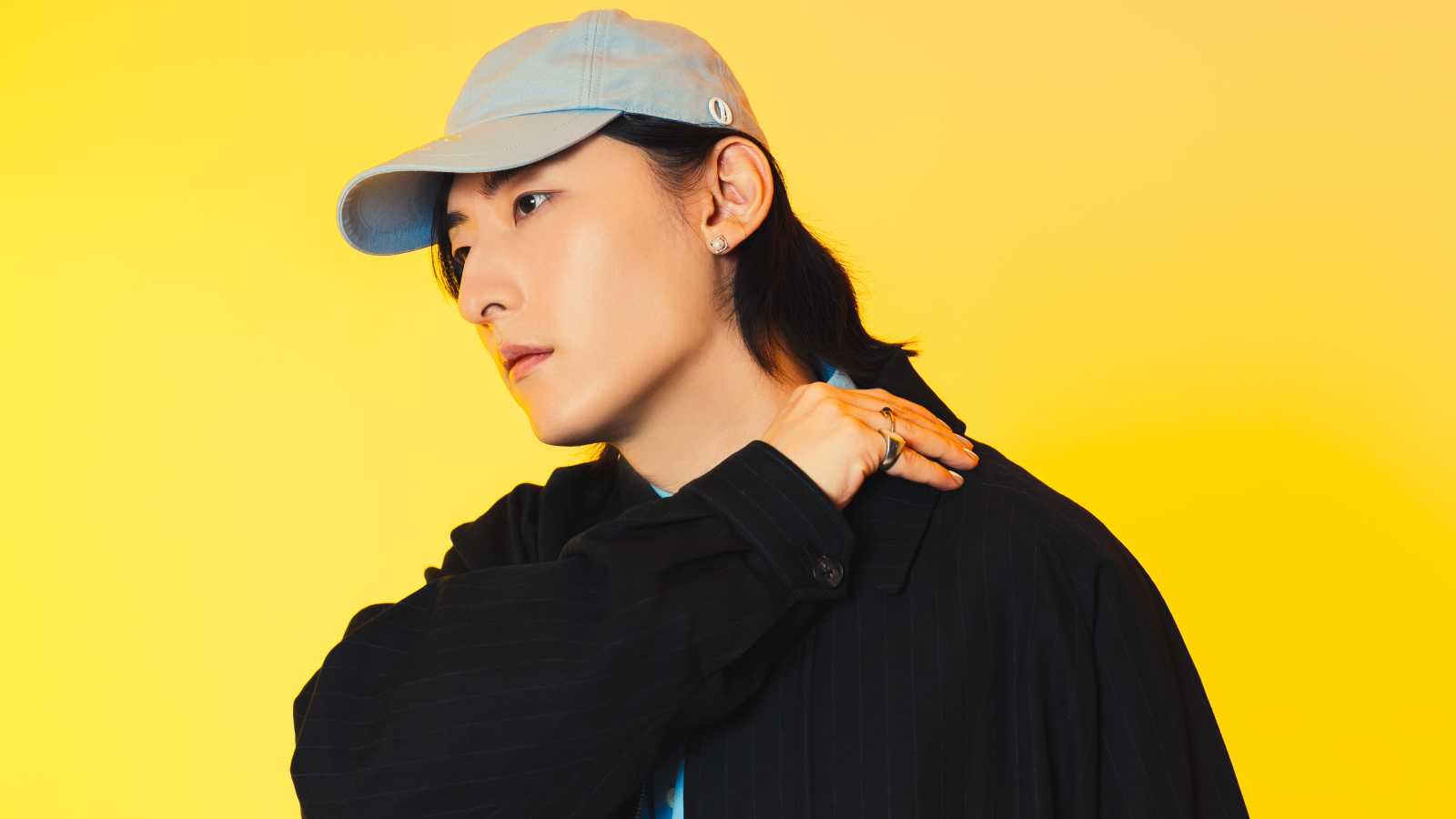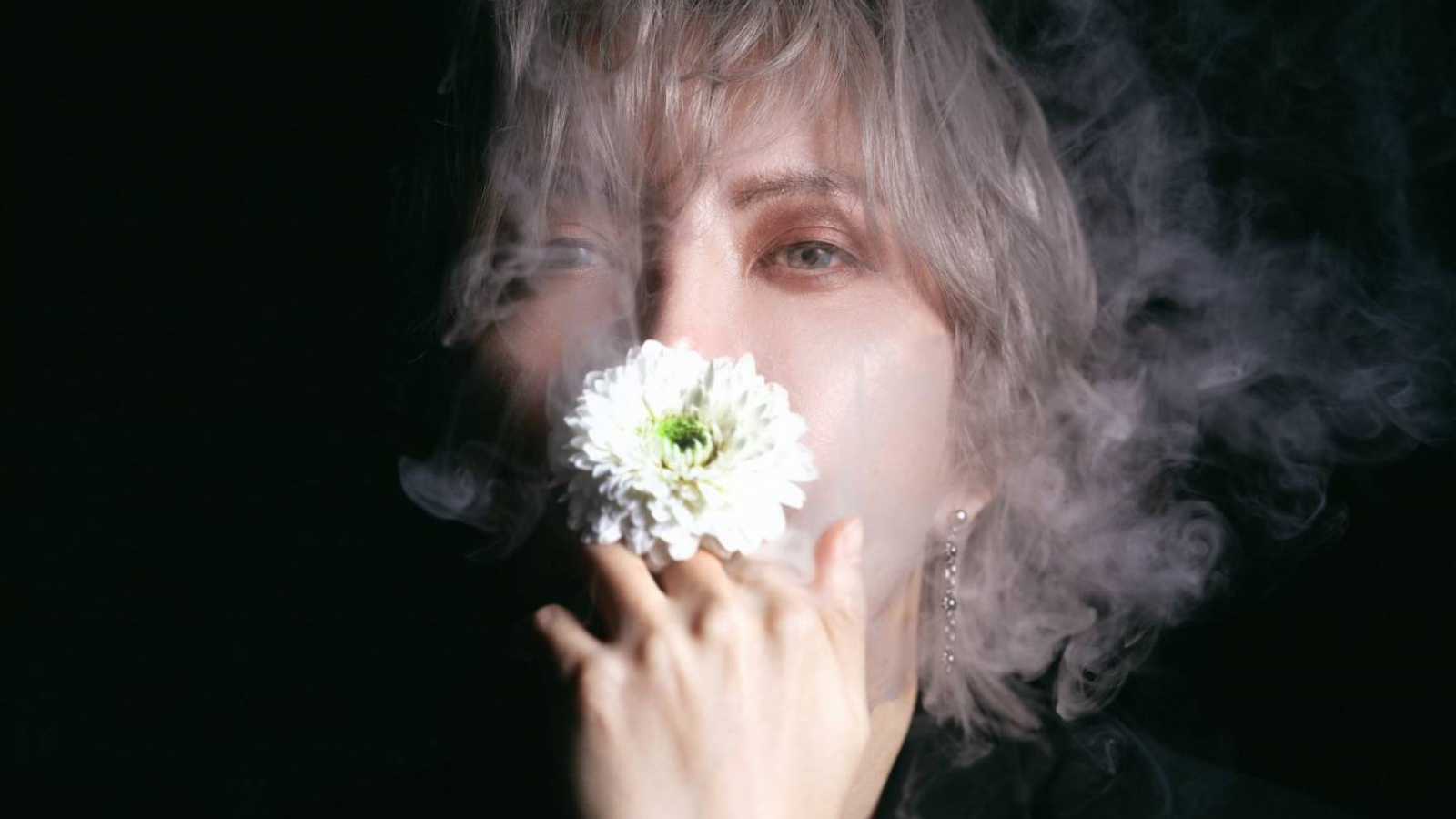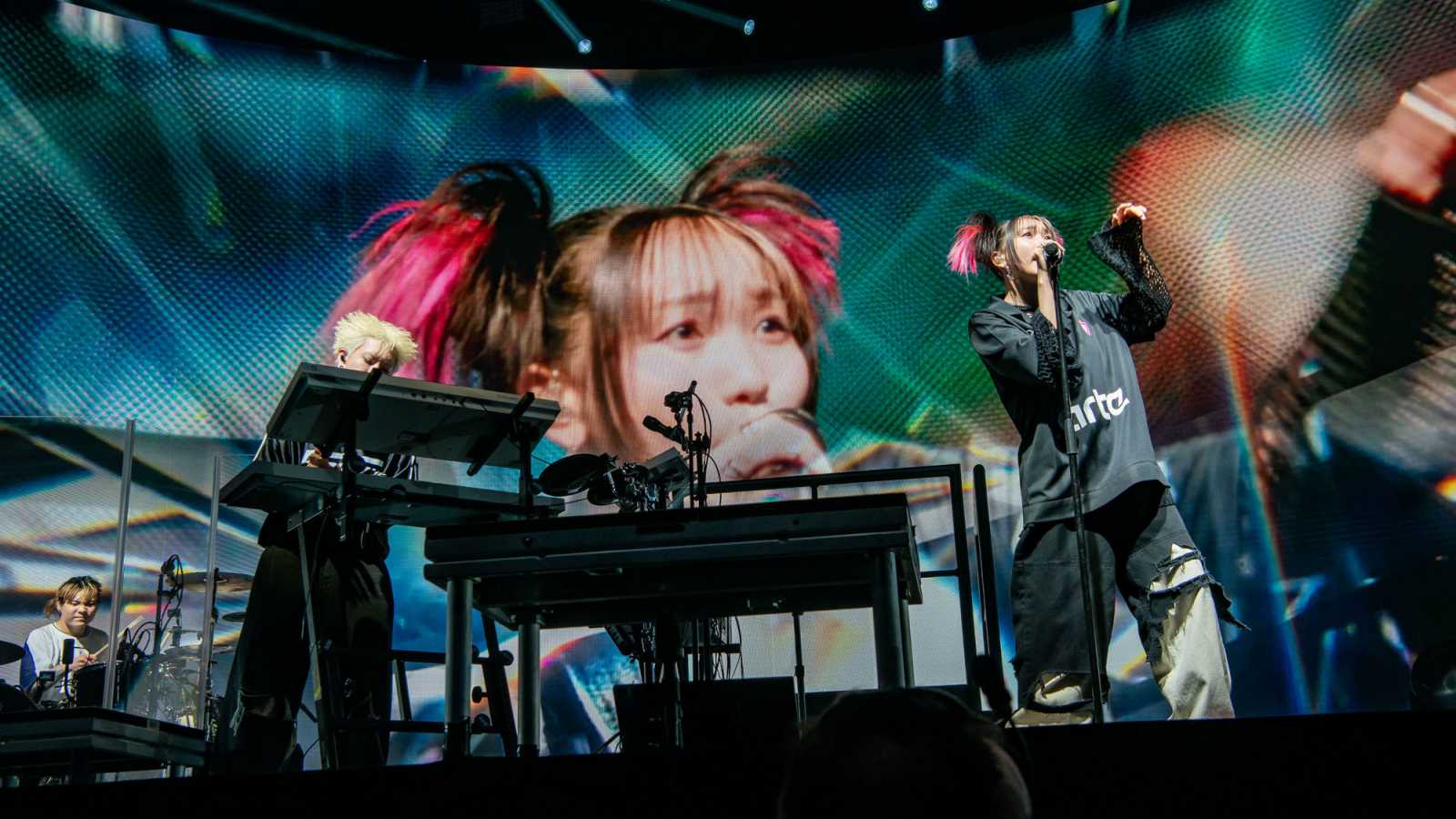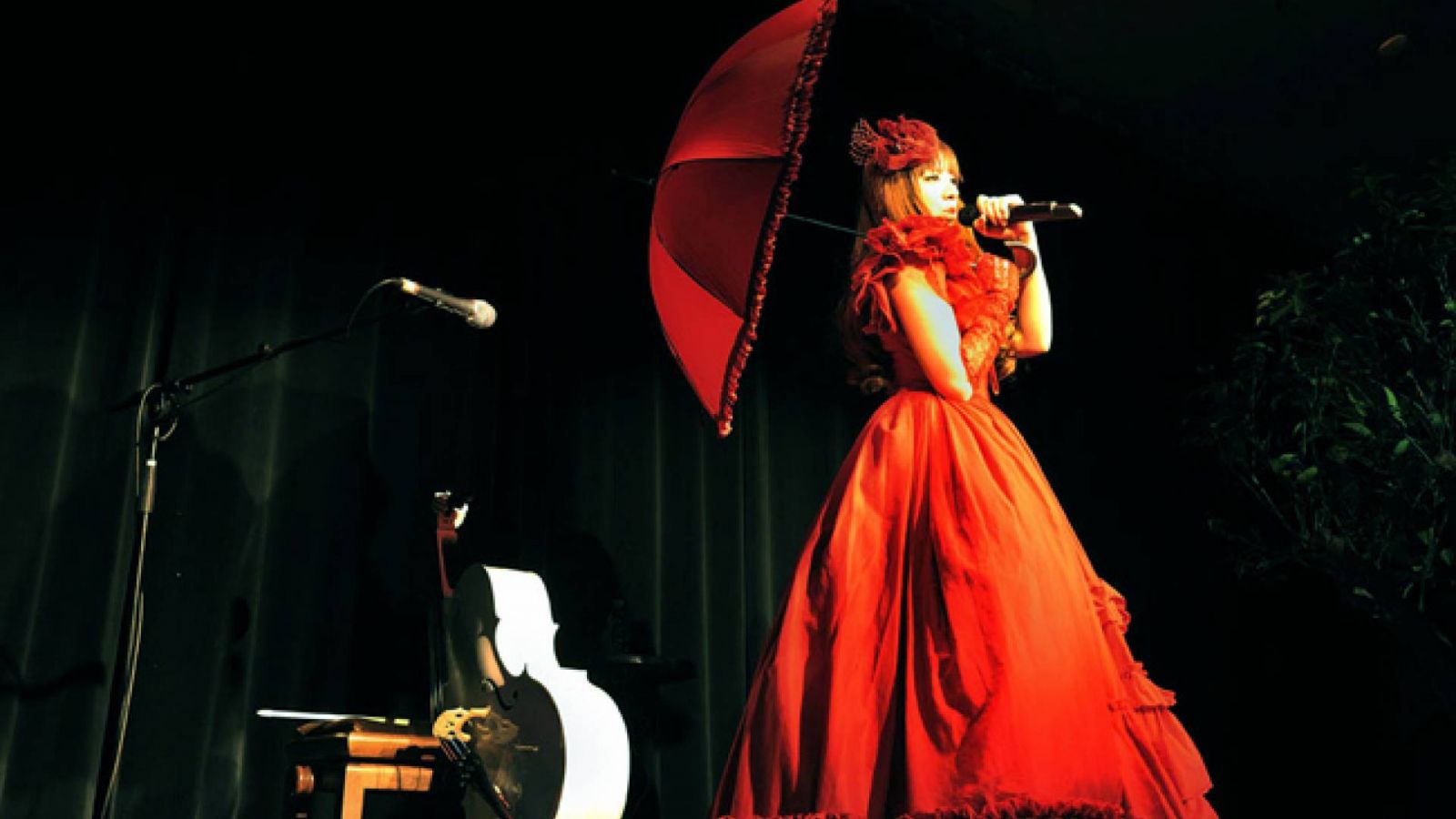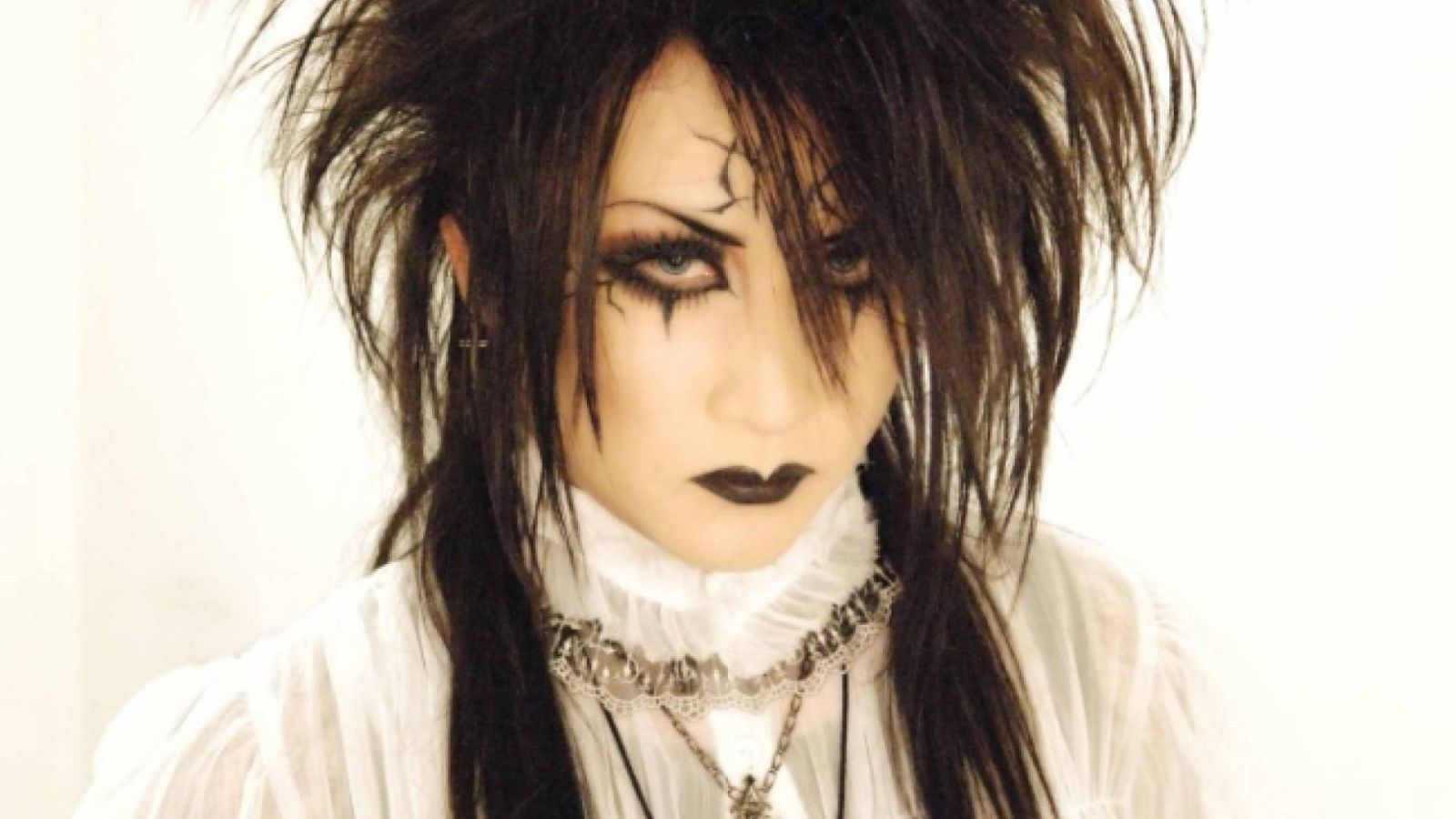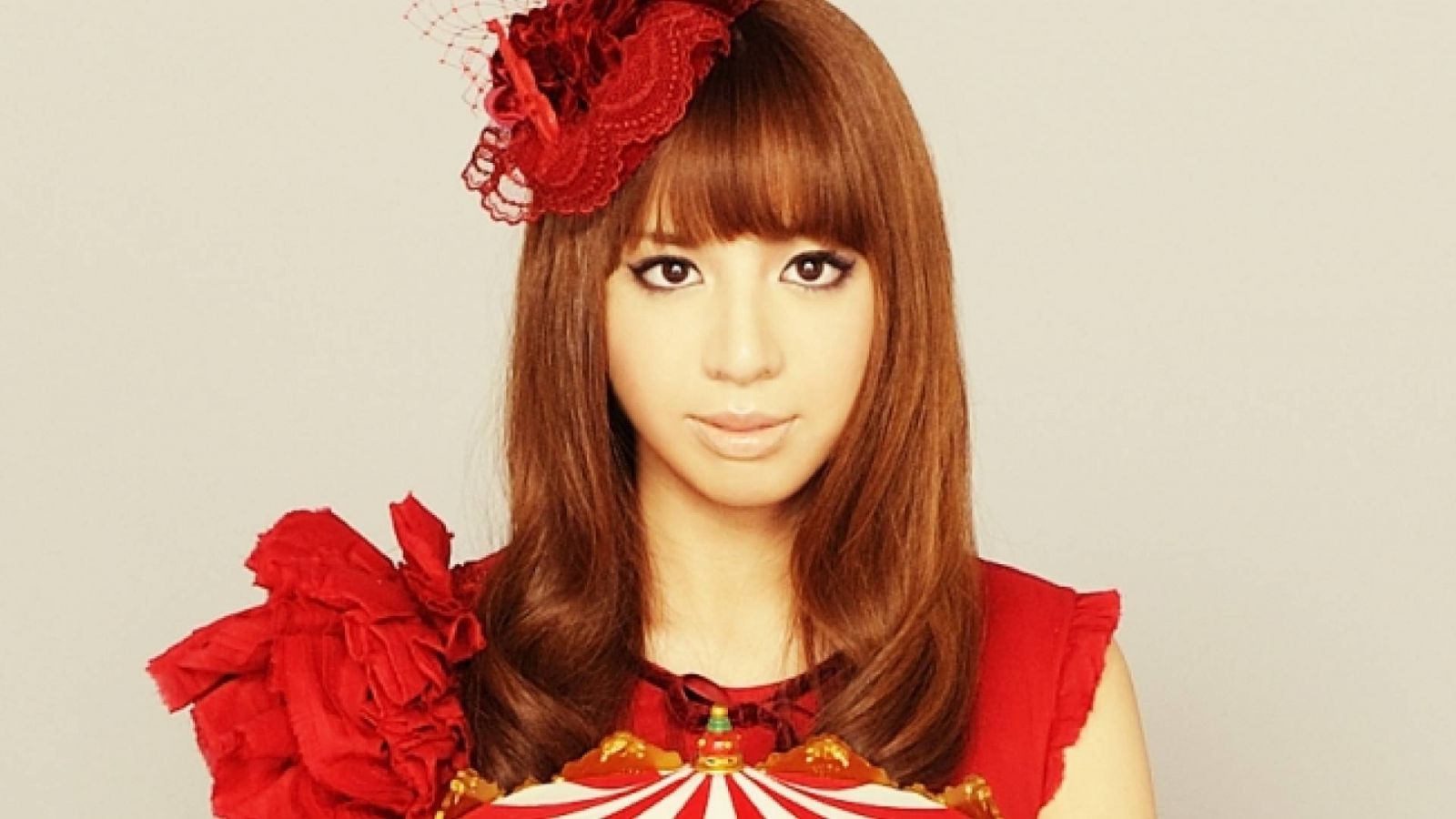On the eve of her show and signing session at FNAC, JaME interviewed the young musician. She was more than happy and ready to answer our questions.
With the release of her album Shinshoku Dolce in France, Kanon Wakeshima came to visit Paris with her mentor and producer Mana. Besides holding a live concert at La Bellevilloise and a showcase at FNAC, Kanon also sat down with JaME for an in depth interview about France, her musical background and her newest album. With her straightforward charm, she offers insightful and thoughtful details about herself.
Hello, could you introduce yourself to those who do not already know you?
Kanon Wakeshima: (in French) I am Kanon Wakeshima, and I've played the cello since I was three years old. My hobby is drawing. My favorite dish is spaghetti. I like cats; mine is black...desu! (She finishes with "desu," often used at the end of Japanese sentences, which made everyone laugh.)
How did you meet Mana?
Kanon Wakeshima: Well, I participated in an audition held by Sony Music Japan and they were looking for new talent, singers under twenty years old. So I sent them a demo tape in which I sang while playing the cello. And that is how I was discovered. I was lucky enough to be so original that I was picked out of all of the participants; at the time, Mana-sama was looking to produce a young singer and he was inspired by the cello. And thus, this would be an original mix of pop and cello. Mana-sama took me under his wing and launched things from there.
What made you want to participate in the audition to begin with?
Kanon Wakeshima: Since college, I had created several demo tapes of small pieces that I had composed as a hobby. Then, one day after leaving school, there were people who were distributing leaflets for this contest for people under twenty. I thought why not send a tape, but it was without much conviction because I thought that the auditions were rigged - people would send tapes but no one would actually listen to them. I also thought about musicians who experienced a lot of difficulty trying to be heard, going from audition to audition but never really being considered. When I did send in my tape, people listened to it and I succeeded on my first try! And it was my first audition! Finally, I understood that it was made possible by those who had listened to all of those tapes, and it made a great impression on me.
How did the composition of the songs proceed with Mana, knowing that he composed the music and you wrote the lyrics?
Kanon Wakeshima: Usually, one has the image of Mana-sama, who does so much on stage, as almost aggressive - but when we worked together, it was not at all like that. He was very calm and composed, a true gentleman who was very focused on whatever he was doing. He was also very attentive to others, and it was a great pleasure to work with him. He is someone who will pursue a goal that he has decided on because once he starts on a melody, he will continue to work on it until he is satisfied. He was not really too talkative at work.
How did your parents get you playing the cello at three years old?
Kanon Wakeshima: Actually, before I was born, my parents had already decided that I would play the cello. They always had the idea that I would play an instrument. And when I turned three, they came upon a flyer advertising a cello teacher and they contacted him. What was funny was that I was very small at the time and I had a mini-cello! (laughs)
How did you come to be attracted to baroque music?
Kanon Wakeshima: While I was in college, I met several people who were very interested in baroque music, and they were also very involved as musicians. I became a part of this group and I discovered baroque music through them, and their passion for it went quite far: some of them prepared their own instruments, as some no longer exist today! I also had the chance to play at a church, where I played baroque songs once a month with my group.
Were you interested in the Gothic Lolita movement before you launched your career?
Kanon Wakeshima: I knew of the movement previously, but I was primarily interested in the classical girl style, though I did find the Gothic Lolita very cute.
Would you consider playing with an actual orchestra on stage? And how about directing it yourself?
Kanon Wakeshima: When I was in high school, during competitions and performances, I happened to direct the sets, but I found it very difficult! (laughs)
What was your vision of France? You mentioned in your blog that you were anxious to come here, how do you find Paris now?
Kanon Wakeshima: (laughs) It was a strange impression that I had, because everything that I saw on television or in the magazines was right in front of me. (laughs)
And does it all meet your expectations?
Kanon Wakeshima: First, the museums are very impressive. It is also rare to see so many old buildings. It's very different from Japan where there are many high and modern buildings. (in French) It's very wonderful!
What do you expect from the two events you're holding?
Kanon Wakeshima: I simply hope that there will be many people who come to listen to me.
Do you have any concerns about the differences between fans here and fans in Japan?
Kanon Wakeshima: I wonder how my music will be received because I'm not sure how foreign people perceive Japanese music. I am a little bit anxious.
In your second single Suna no Oshiro, we can hear you using whispering couplets, and this creates a more ambiguous atmosphere. What kind of feeling did you hope to deliver?
Kanon Wakeshima: This was a song about shadow and light. When I whispered, we were in the dark so I cut through the darkness with a stronger voice in the chorus. This symbolizes a light that comes from the heavens and pierces through the darkness. This song navigates through shadow and light, in which light pierces through two layers of darkness.
In regard to your album Shinsoku Dolce, did you think that you would one day come to Europe and have a European version of your CD?
Kanon Wakeshima: No, I never thought of that! (laughs)
The name of the album Shinsoku Dolce means a kind of "sweet violation." It's quite interesting, as the two words contradict each other a little bit, like an oxymoron. Why this title?
Kanon Wakeshima: It is supposed to represent the character of Kanon Wakeshima. This character combines innocence and purity with the Gothic darkness within a young girl. This mix gives the album its title because it represents that violation of purity, but at the same time, "dolce" shows that the violation is not completely forbidden and alleviates the aggressive impression. This represents Kanon the best in the antagonism of the two words that make up the name and tone of the album.
The song Ennui Kibun! differs from the others in your album. It has a very light melody and it sounds like you are in the shower when the phone rings. Could you talk a little bit about this song?
Kanon Wakeshima: When Mana-sama gave me the melody to write the lyrics to, I came up with a story to write the lyrics. And with the lightness of the melody, I told myself that it could be the story of a person who was upset but who still had many things to do. And honestly, I have some trouble in the mornings myself! (laughs) I wanted to talk about a character who had trouble waking up and getting started, then nothing goes well: the telephone rings, the cat comes in to bother her, etc. The character is bored, and this is where the word "ennui" ("boredom" in French) comes into the song.
You sing a few songs, including L'espoir~Mahou no Akai Ito~, in French. Why in French and how did you write the lyrics?
Kanon Wakeshima: I did my best! (laughs) The melody of the song evoked French pop, so I left that voice there to write the lyrics: I thought of the story of a little girl in primary school or junior high who, approaching Valentine's Day, gets a little bit worked up and wonders who she confess her love to. So I kept the French side of the melody by speaking a little bit of French. I wrote the lyrics in Japanese, which were then translated into French.
How did you do the translation? Were you helped by anyone in particular?
Kanon Wakeshima: I gave the lyrics to a French professor, whom I also asked to help during recording with my pronunciation.
So did you study French?
Kanon Wakeshima: Oh, a little bit on my own! (laughs)
Your profile indicates that you listen to and appreciate artists like Eric Satie (known for Gymnopédies, among other things), Claude Debussy (who composed works like Clair de Lune, Nocturnes, and Estampes), and Emilie Simon. How did you discover such different artists?
Kanon Wakeshima: I always listen to music and am open to many different kinds, and I realized that many of the compositions that I liked were in French! (laughs)
Do you have a general message to give to those who listen to your music in French, Japanese, or another language?
Kanon Wakeshima: I'm very happy that they listen to my music and I hope they continue to do so for a long time. I really appreciate that there are people outside of Japan who listen to my music. If my music creates an emotional response from people, that makes me happy. And with that in mind, I will continue to do my best! This coming May, I will celebrate the first anniversary of my professional career. Though it has been only a short time, I hope that my first album, in which I put in the sum of all of my experiences, will satisfy those who had the kindness and patience to wait for this album. I really do not want to disappoint!
Do you have any future projects planned?
Kanon Wakeshima: Nothing is clear yet, apart from an upcoming live in Tokyo.
Now, let's talk about your participation in the anime "Vampire Knight:" how did that happen?
Kanon Wakeshima: To begin, I had a song for which I had written the lyrics, but it was not made for the anime. When the anime went into production, they asked me about possibly using the song and I was so happy! Except, I did not know about "Vampire Knight," so I started reading the manga. I found it very interesting, and I was charmed by the fact that the school of the protagonists resembles a castle. I would have liked to go to this type of school as well! (laughs) Then, when I watched the anime, I appreciated the graphic quality of the production, from the colors to the beautiful scenery.
I was very moved when I watched the end credits that played with my song. When the second season of "Vampire Knight" launched production, another song was used, again without previously planning for it. In fact, Mana-sama prepared everything in the background without telling me that the songs would be used for these purposes. Again, I was very happy that my song served the anime and the images flowed perfectly with my words.
There is another thing that really pleased me: in the two singles and the album, there is a drawing by the mangaka of "Vampire Knight," Hino Matsuri.
You also have a certain talent in drawing as we can see from your journal on your website. Are you thinking of using this in one of your future clips?
Kanon Wakeshima: You think so? Nothing is planned at the moment! (laughs) Otherwise my drawings are used in the album, where you can see my cat.
But given the news of the next two days, do you have a message in particular for the French fans who listened to your CD?
Kanon Wakeshima: I have a message of two points that I would like to convey.
First, I would like people to know how fortunate I was to have the chance to work with Mana-sama. Through him, I was able to create this universe made of light and dark. It is a universe that I find a particular attraction to and I hope you enjoy it as well. Mana-sama helped bring together two different worlds, namely that of electro-pop and classical cello music.
And secondly, in my album, the main theme is not reality. It is escaping from reality with stories that are dream-like, but not necessarily fantastic. I hope that everyone will enjoy them.
Thank you.
Kanon Wakeshimaa: Thank you.
JaME would like to thank Kanon Wakeshima and her team, Sony Music Japan, Grégoire Hellot for translating, and the team of Wasabi Records (Aurélie and Gaëlle).

